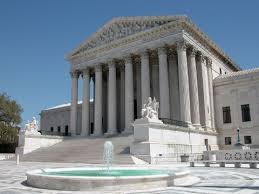FiveThirtyEight now projects The Last Unresolved House Race Of 2018, the California 21st is likely to be the 40th Democratic pickup. Democrat TJ Cox will turn out Republican Rep. David Valadao.
NBC News reports, Democrats smash Watergate record for House popular vote in midterms:
 Democrats won the House with the largest margin of victory in a midterms election for either party, according to NBC News election data.
Democrats won the House with the largest margin of victory in a midterms election for either party, according to NBC News election data.
While votes are still being tallied, Democratic House candidates currently hold an 8,805,130 vote lead over Republicans as of Monday morning. The Democrats’ national margin of victory in House contests smashes the previous midterms record of 8.7 million votes in 1974, won just months after President Richard Nixon resigned from office in disgrace amid the Watergate scandal.
Of the more than 111 million votes cast in House races nationwide, Democrats took 53.1 percent — retaking control of the House of Representatives by flipping nearly 40 seats — while Republicans received 45.2 percent of the vote.
Brent Budowsky writes at The Hill, House Dems won a historic mandate (excerpt):
In the most important midterm election in a century, after voter turnout of epic and historic proportions, House Democrats won a popular vote majority of more than 9 million votes. By contrast, Donald Trump lost the 2016 popular vote by some 3 million votes, and is now viewed as a great divider and dangerous pariah by peoples and leaders of democratic nations throughout the world.
Politics is about power. Effective January 2019, no bill will be enacted into law, and no dollar will be authorized or appropriated, without the support of the Democratic House. House Democrats have won a dramatic mandate to propose — and ultimately pass — legislation to lift the health, wages and lives of Americans, as well as to set the stage to elect the next Democratic president and Democratic Senate in 2020, when most senators running for reelection will be Republicans.

